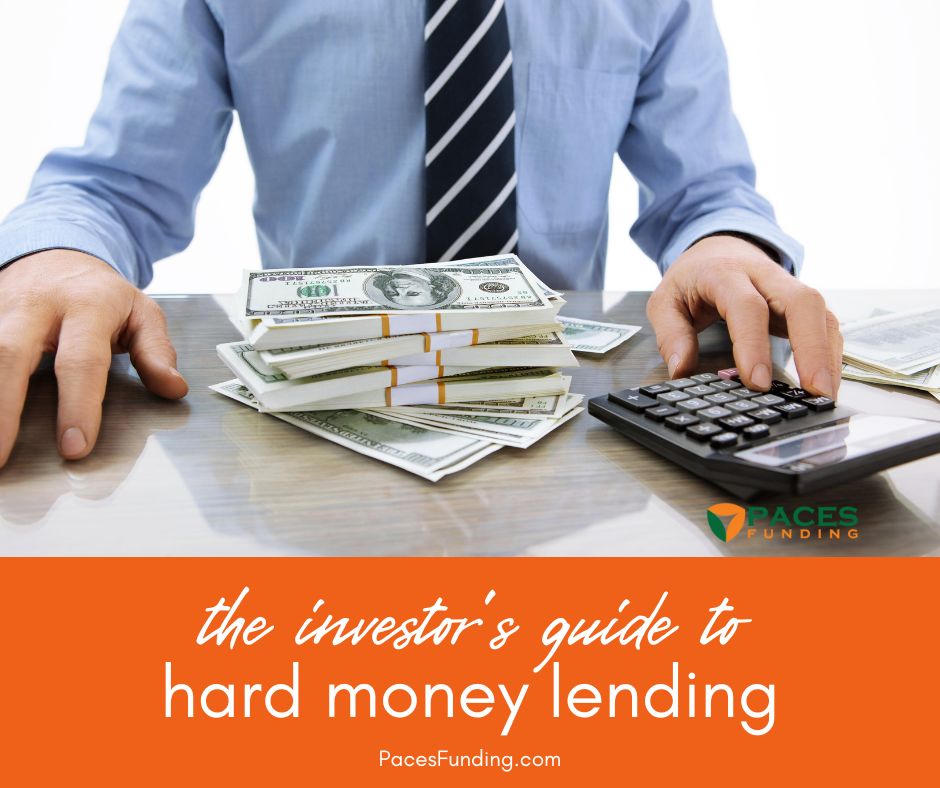
The Ultimate Guide to Hard Money Lending for Real Estate Investors
If you’re a real estate investor, you know that financing your deals can be a major challenge. Traditional lenders like banks and credit unions often have strict lending criteria, which can make it difficult to get the funding you need. That’s where hard money lending comes in. In this guide, we’ll explore what hard money lending is, how it works, and the benefits and risks of using this financing option.
What is Hard Money Lending?
Hard money lending is a type of loan that’s typically used to finance real estate investments. Unlike traditional loans, hard money loans are secured by the property you’re purchasing. This means that if you default on the loan, the lender can take possession of the property.
How Does Hard Money Lending Work?
Hard money loans are typically issued by private lenders or investors. These lenders often have less stringent lending criteria than traditional lenders, which means that they can fund deals more quickly. In most cases, hard money loans are short-term loans that must be repaid within one to three years. Interest rates on hard money loans are typically higher than traditional loans, often in the range of 10% to 15%.
Related: The three financing options every new investor should understand
Benefits of Hard Money Lending
One of the biggest benefits of hard money lending is speed. Since the lending criteria are less strict and the loans are secured by the property, lenders can fund deals more quickly than traditional lenders. This can be a huge advantage in a competitive real estate market. Additionally, hard money lenders are often more willing to lend to investors with less-than-perfect credit, making it an attractive option for those who might not qualify for traditional financing.
Another benefit of hard money lending is flexibility. Traditional lenders often have strict requirements for the types of properties they’ll finance, the amount of money they’ll lend, and the terms of the loan. Hard money lenders, on the other hand, are more willing to work with investors on a case-by-case basis. This means that you may be able to negotiate better terms and more favorable loan conditions.
Related: Are people moving to the South in record numbers?
Risks of Hard Money Lending
While hard money lending can be a great option for real estate investors, there are also some risks to consider. First and foremost, interest rates on hard money loans are typically higher than traditional loans. This means that you’ll pay more in interest over the life of the loan, which can eat into your profits.
Another risk of hard money lending is that the loans are often short-term. This means that you’ll need to have a solid exit strategy in place to repay the loan when it comes due. If you’re unable to do so, you may be forced to sell the property or refinance the loan at a higher interest rate.
Finally, hard money loans are typically secured by the property you’re purchasing. If the deal falls through or you’re unable to repay the loan, the lender can take possession of the property. This is a risk that all real estate investors need to be aware of.
Related: Everything you need to know about cash-on-cash return in real estate
How to Find a Hard Money Lender
If you’re interested in hard money lending, you can ask for referrals from other real estate investors or your local real estate investment club. You can also do some research on your own, particularly paying attention to lenders that are willing to share information freely.
Once you’ve found a potential lender, you’ll want to do your due diligence. Check their website, read reviews, and ask for references. Make sure that they’re licensed and have a good track record of funding deals.
Hard money lending can be a great option for real estate investors who need quick funding and more flexible lending criteria. However, it’s important to weigh the risks and benefits before pursuing this financing option. If you decide that hard money lending is the right choice for you, here are some key steps to take:
- Research and choose a reputable lender: Do your due diligence when choosing a hard money lender. Look for lenders with a strong track record of successful loans, good customer reviews, and clear terms and fees.
- Understand the terms and fees: Make sure you understand the interest rates, fees, and other terms of the loan. Hard money loans typically come with higher interest rates and fees than traditional loans, so be sure you’re comfortable with the cost of borrowing.
- Have a solid plan for the property: Hard money lenders are primarily interested in the value of the property, so you need to have a solid plan for what you’re going to do with the property to increase its value. This can include renovations, repairs, or other improvements.
- Have an exit strategy: Hard money loans are usually short-term loans with a balloon payment at the end of the term. Make sure you have a solid exit strategy in place, such as selling the property or refinancing with a traditional lender.
- Be prepared for a higher risk: Hard money loans come with a higher risk than traditional loans, so be prepared for the possibility of defaulting on the loan. Make sure you have a contingency plan in place in case things don’t go as planned.
- Work with an experienced team: Hard money lending can be complex and requires a team of experienced professionals, including a real estate attorney, a real estate agent, and a contractor. Make sure you work with a team that has experience with hard money loans and can help guide you through the process.
Related: 7 tips to help you sell a flip fast
Do You Need a Hard Money Loan?
Paces Funding is the top hard money lender in Georgia, North Carolina, South Carolina and Tennessee. Apply for a hard money loan here or click through our site to find out how we can help you now!














